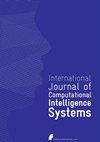基于“5G +北斗”和三维点云图的无人车融合定位技术
IF 2.9
4区 计算机科学
International Journal of Computational Intelligence Systems
Pub Date : 2023-11-06
DOI:10.1007/s44196-023-00352-0
引用次数: 0
摘要
无人驾驶车辆需要准确地了解自身的位置和方向信息,以规划和导航其路径。然而,定位系统容易受到多种因素的干扰,导致定位误差增大,从而影响无人车的定位精度。提出了一种基于“5G +北斗”综合定位系统的无人车融合定位技术。在使用“5G +北斗”基站进行定位时,融合三维点云图像,通过车辆自主导航算法进行高精度实时定位。本文首先分析了GNSS技术的现状和特点,研究了“5G +北斗”组合定位系统的关键技术和原理。然后,针对5G基站部署的难点,设计了基于多维融合结构的GNSS系统参数优化方案。最后,在实验中验证了融合系统与传统的一维GNSS和多维GNSS相比,可以获得更高精度的定位结果。利用“5G +北斗”的技术优势,对无人驾驶车辆进行数据融合处理,提出了一种基于三维点云图与高精度地图相结合的定位方法。实验结果表明,融合定位方法可以将误差控制在0.1以下,显示了融合定位的准确性。本文章由计算机程序翻译,如有差异,请以英文原文为准。
Unmanned Vehicle Fusion Positioning Technology Based on “5G + Beidou” and 3D Point Cloud Image
Abstract Unmanned vehicles need to know their location and direction information accurately to plan and navigate their paths. However, the positioning system is susceptible to interference from a variety of factors, which leads to increased positioning errors, thereby affecting the accuracy of unmanned vehicle positioning. An unmanned vehicle fusion positioning technology based on the "5G + Beidou" integrated positioning system was proposed. While using the "5G + Beidou" base station for positioning, the 3D point cloud image was fused, and the high-precision real-time positioning was carried out through the vehicle's autonomous navigation algorithm. This paper first analyzed the current situation and characteristics of GNSS technology and studied the key technologies and principles of the "5G + Beidou" integrated positioning system. Then, aiming at the difficulty of 5G base station deployment, the GNSS system parameter optimization scheme based on a multidimensional fusion structure was designed. Finally, in the experiment, it was verified that the fusion system could achieve higher precision positioning results compared with traditional single-dimensional GNSS and multi-dimensional GNSS. The technical advantages of "5G + Beidou" were used for data fusion processing of unmanned vehicles, and a positioning method based on the combination of 3D point cloud image and high-precision map was proposed. Through some experiments, it was concluded that the fusion location method could control the error below 0.1, which showed the accuracy of the fusion location.
求助全文
通过发布文献求助,成功后即可免费获取论文全文。
去求助
来源期刊

International Journal of Computational Intelligence Systems
工程技术-计算机:跨学科应用
自引率
3.40%
发文量
94
期刊介绍:
The International Journal of Computational Intelligence Systems publishes original research on all aspects of applied computational intelligence, especially targeting papers demonstrating the use of techniques and methods originating from computational intelligence theory. The core theories of computational intelligence are fuzzy logic, neural networks, evolutionary computation and probabilistic reasoning. The journal publishes only articles related to the use of computational intelligence and broadly covers the following topics:
-Autonomous reasoning-
Bio-informatics-
Cloud computing-
Condition monitoring-
Data science-
Data mining-
Data visualization-
Decision support systems-
Fault diagnosis-
Intelligent information retrieval-
Human-machine interaction and interfaces-
Image processing-
Internet and networks-
Noise analysis-
Pattern recognition-
Prediction systems-
Power (nuclear) safety systems-
Process and system control-
Real-time systems-
Risk analysis and safety-related issues-
Robotics-
Signal and image processing-
IoT and smart environments-
Systems integration-
System control-
System modelling and optimization-
Telecommunications-
Time series prediction-
Warning systems-
Virtual reality-
Web intelligence-
Deep learning
 求助内容:
求助内容: 应助结果提醒方式:
应助结果提醒方式:


